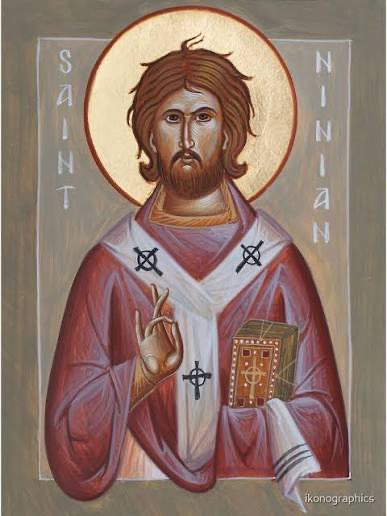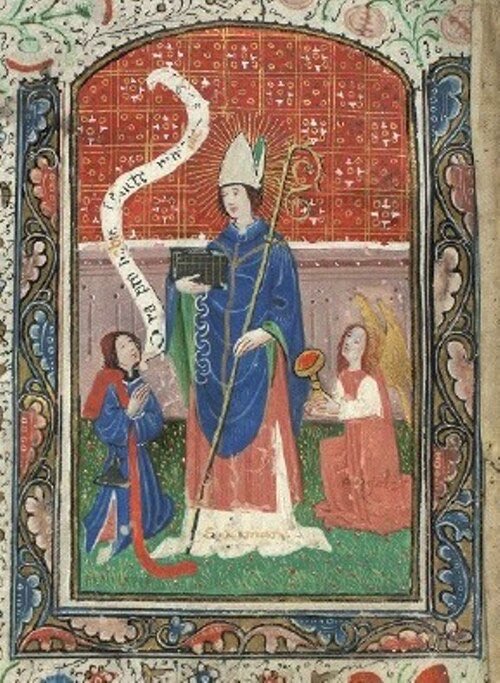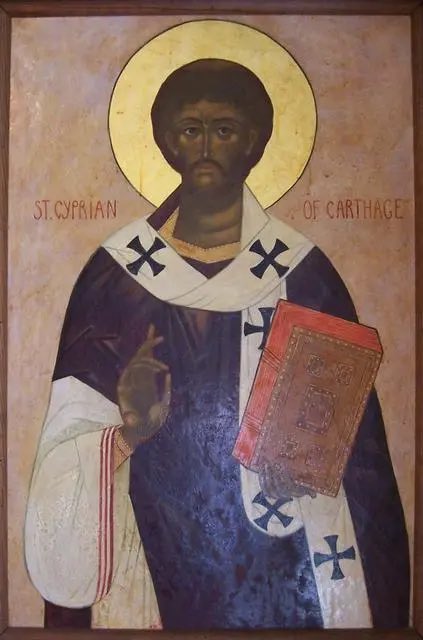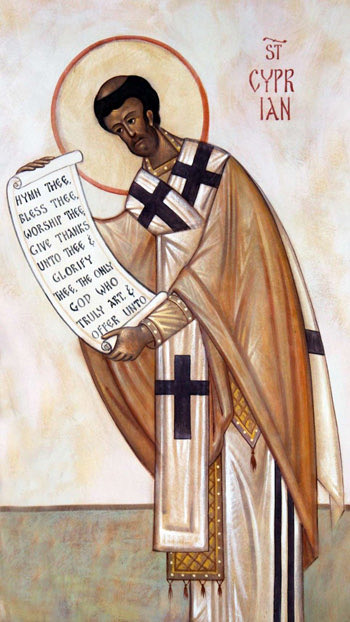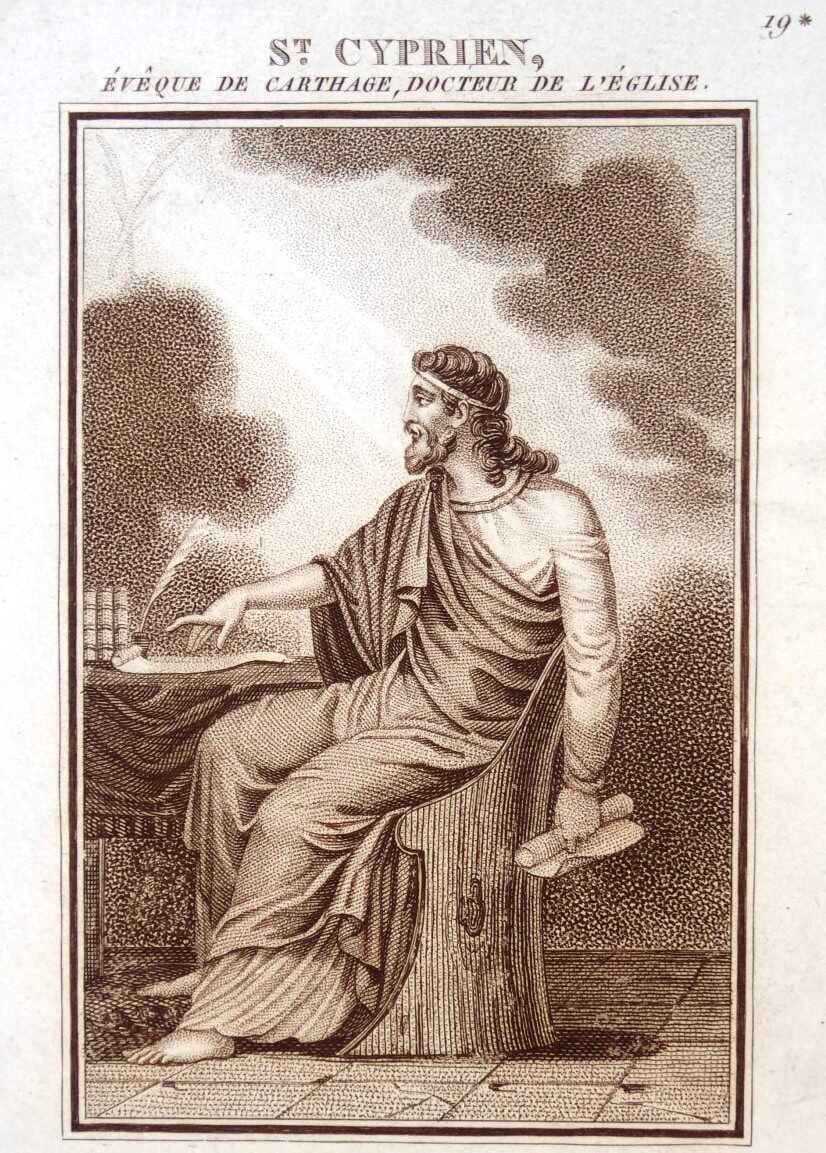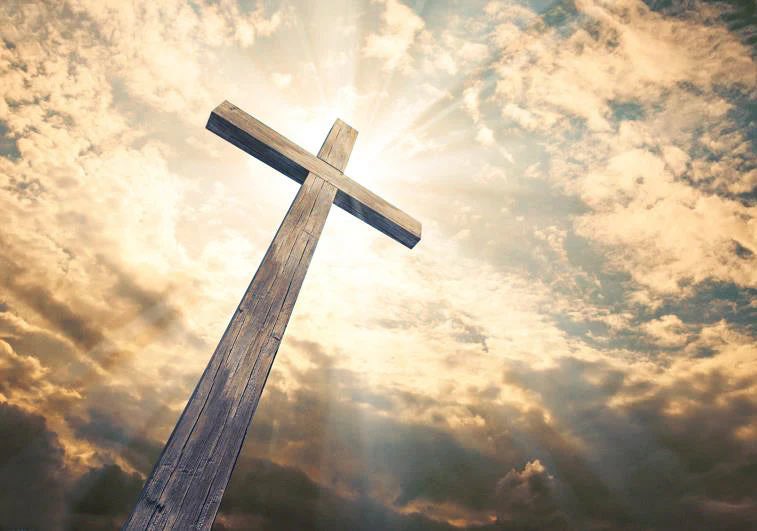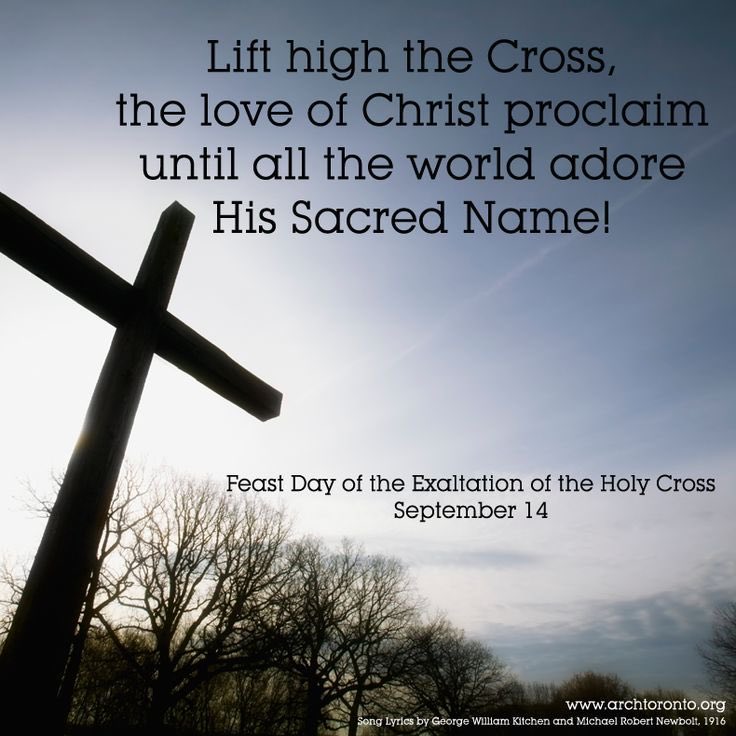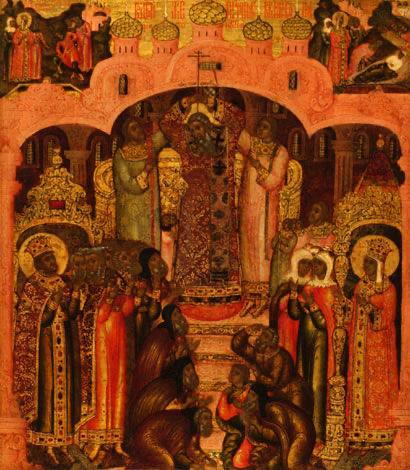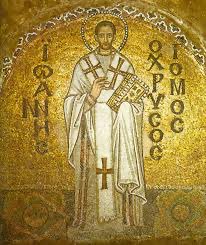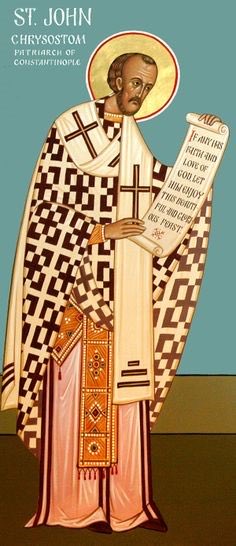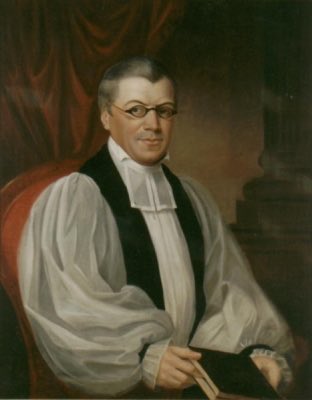✝️John Coleridge Patteson.
He was an English Anglican bishop, missionary, and linguist who became the first Bishop of Melanesia in 1861, dedicating his life to evangelizing and educating the people of the South Pacific islands and fighting against slavery, until his martyrdom in 1871.
He was an English Anglican bishop, missionary, and linguist who became the first Bishop of Melanesia in 1861, dedicating his life to evangelizing and educating the people of the South Pacific islands and fighting against slavery, until his martyrdom in 1871.
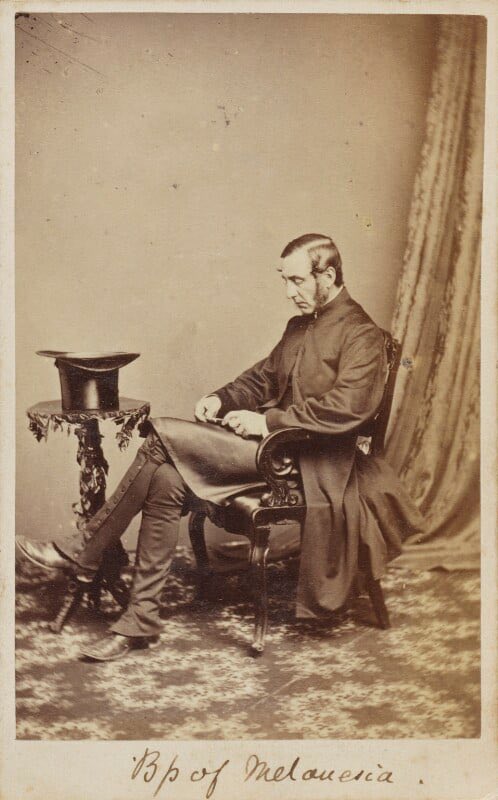
Born in London in 1827, John Coleridge Patteson became a missionary to the South Pacific islands in 1855, responding to Bishop Selwyn's call.
Consecrated as the first Bishop of Melanesia in 1861, Patteson was a gifted linguist who learned 23 Melanesian languages to better communicate with and minister to the indigenous peoples.
Consecrated as the first Bishop of Melanesia in 1861, Patteson was a gifted linguist who learned 23 Melanesian languages to better communicate with and minister to the indigenous peoples.
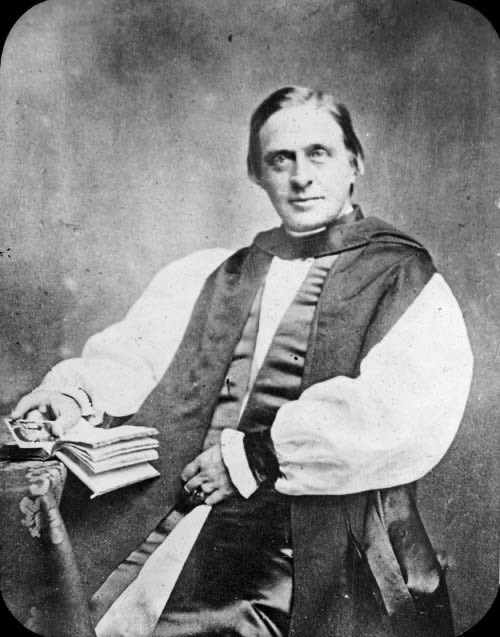
He founded schools for native Christian workers, including St. Barnabas College on Norfolk Island, and worked to develop a distinctly Melanesian expression of Christianity.
He actively opposed the slave trade ("blackbirding") in the South Pacific and advocated for justice for the Melanesian people.
He actively opposed the slave trade ("blackbirding") in the South Pacific and advocated for justice for the Melanesian people.
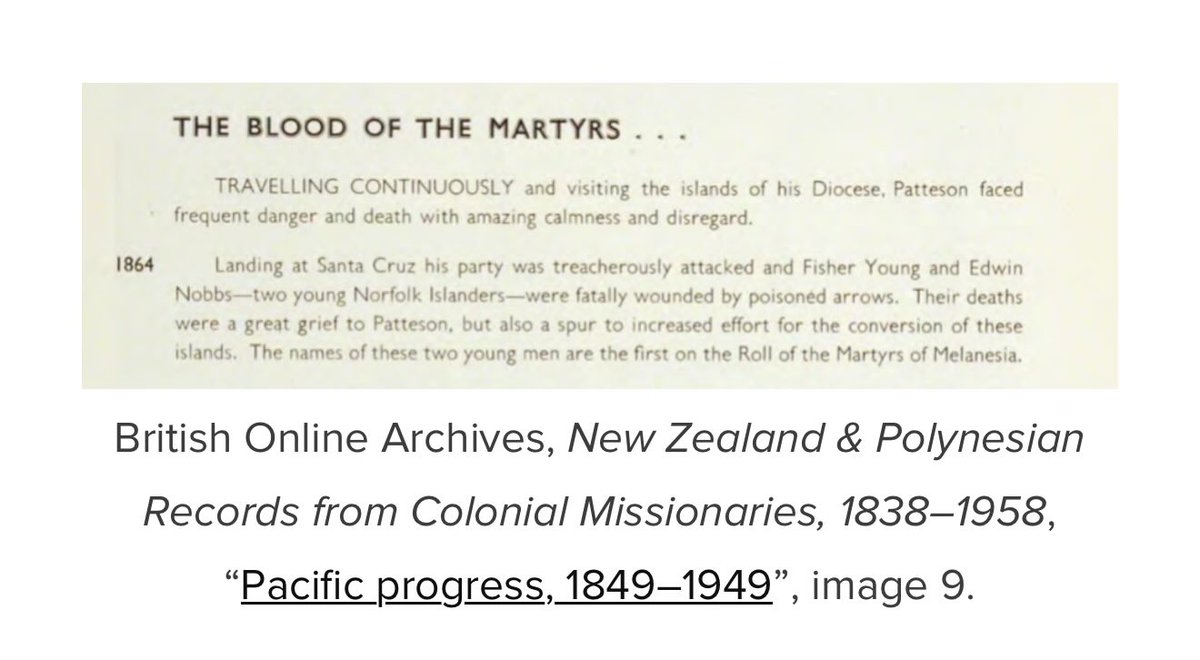
On September 20, 1871, Patteson was martyred on Nukapu island, likely in retaliation for slave raids, along with two companions.
His death led to increased efforts to end the labor trade in the Pacific and contributed to the growth of a strong, indigenous Melanesian Church.
His death led to increased efforts to end the labor trade in the Pacific and contributed to the growth of a strong, indigenous Melanesian Church.

🙏🏻
O Almighty God,
who didst give thy servants John Coleridge Patteson and his companions boldness to confess the Name of our Savior Jesus Christ before the rulers of this world, and courage to die for this faith:
Grant that we may always be ready to give a reason for the hope that is in us, and to suffer gladly for the sake of the same our Lord Jesus Christ; who liveth and reigneth with thee, in the unity of the Holy Ghost, ever one God,
world without end.
Amen.
O Almighty God,
who didst give thy servants John Coleridge Patteson and his companions boldness to confess the Name of our Savior Jesus Christ before the rulers of this world, and courage to die for this faith:
Grant that we may always be ready to give a reason for the hope that is in us, and to suffer gladly for the sake of the same our Lord Jesus Christ; who liveth and reigneth with thee, in the unity of the Holy Ghost, ever one God,
world without end.
Amen.
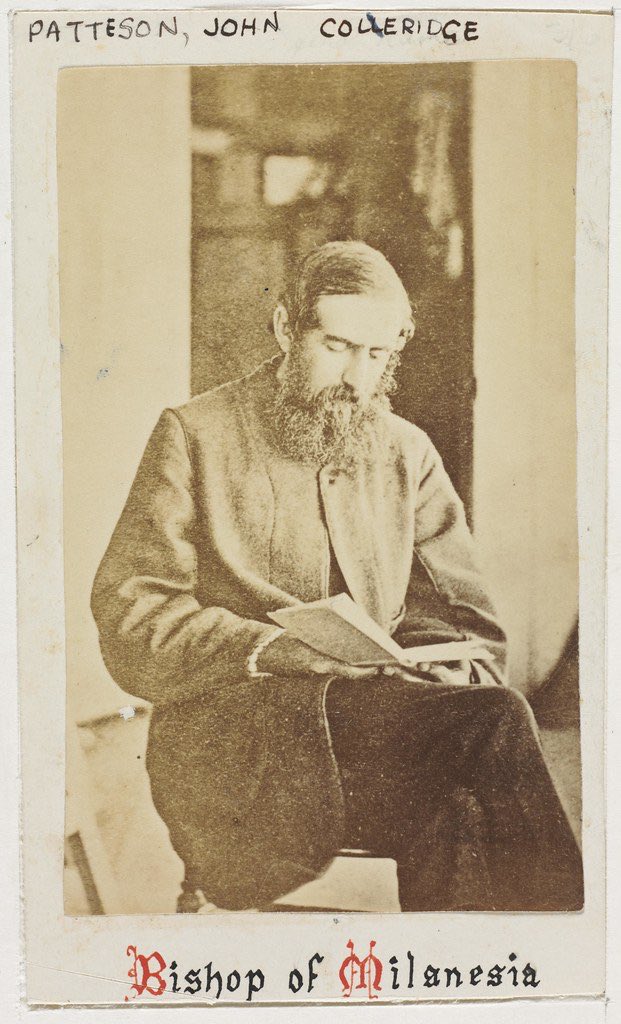
To find out more:
👉🏻 dailyoffice2019.com/commemorations…
👉🏻 dailyoffice2019.com/commemorations…
@threadreaderapp unroll
• • •
Missing some Tweet in this thread? You can try to
force a refresh



